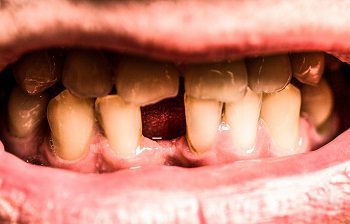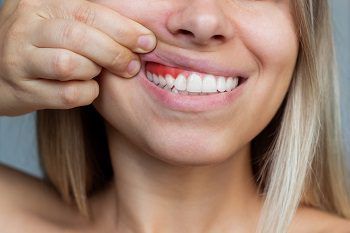What causes periodontal disease?
Have you ever had sore or bleeding gums? The infection and inflammation of the gums, ligaments, and bone surrounding your teeth are known as periodontal diseases. Furthermore, understanding the causes of periodontal disease, treatments, and measures is critical for maintaining oral and general health.
What is periodontitis?
The two most severe dangers to oral health are periodontal disease and tooth decay. Usually, periodontitis is caused by infections and inflammation of the gums and bones surrounding and supporting the teeth. In its early stages, known as gingivitis, the gums become swollen, red, and bleed. However, periodontitis is a severe form of gum disease in which the gums peel away from the tooth, and teeth become loosened or fall out. Moreover, adults are more likely to get periodontal disease.
What are the symptoms of periodontitis?
The symptoms include:
Severe gum bleeding when you brush your teeth

- Chronic bad breath
- swollen gums
- Gum recession
- Plaque buildup on teeth
- Tooth loss
- Pain while chewing food
- Foul taste in your mouth
Symptoms of periodontitis are generally subtle in the early stages. However, your dentist will most likely be the first to notice them.
Causes of periodontal diseases
Poor oral hygiene is the most common reason for periodontitis. Typically, healthy people have hundreds of different species of bacteria in their mouths. The majority of them are perfectly safe. However, bacteria form and build up on your teeth if you don't clean them correctly daily. Consequently, when you don't brush your teeth or clean hard-to-reach areas of your mouth, the following things happen:
- Bacteria in your mouth grow and combine to produce dental plaque.
- If you do not remove plaque by brushing, the bacteria build minerals within the plaque over time.
- This mineral buildup is known as tartar and encourages bacterial development near the tooth's root.
- The immune reaction of your body to this bacterial growth causes gum inflammation.
- The connection of the gum to the root of a tooth gets broken over time. As a result, it forms a periodontal pocket (gap) between the gum and root.
- Dangerous anaerobic bacteria grow and thrive in the pocket, generating toxins that can harm the gums, teeth, and supporting bone structures.
Risk factors
- Smoking
- Diabetes
- Oral hygiene issues
- Stress
- Heredity
- Crooked teeth
- Underlying immunodeficiencies, such as AIDS
- Fillings that have deteriorated
- Taking drugs that induce dry mouth
- Changes in female hormones, such as pregnancy or the use of oral contraceptives
Treatments for periodontitis
- Early-stage treatment
Professional cleaning is the most effective therapy for gingivitis. Firstly, your dental care professional will remove the tartar and plaque. Secondly, your dental professional will perform deep cleaning and remove the tartar from difficult-to-reach spots. As a result, after removing these toxins, your gums will recover on their own. Moreover, your dentist will give you instructions to prevent gingivitis from reoccurring.
- Periodontitis

Scaling and root planning is a technique that removes plaque and tartar from the tooth's root. Scaling is the sole therapy required for many patients with periodontitis. However, periodontists may need to perform minor treatments in some circumstances to eradicate the periodontal disease. Additionally, periodontitis treatments may include tooth extraction in some cases. Moreover, your periodontist may repair bone loss due to periodontal disease.
Conclusion
Periodontitis needs regular visits to the dentist to ensure that the condition does not worsen. Most importantly, you must improve your oral hygiene practices and fully cooperate with your dentist's recommendations to get a favorable outcome. Furthermore, the long-term outlook depends on your dental hygiene efforts and your dentist's continuing evaluation.
Contact your Pinole dentist, Dr. Hoss Abar, DDS, MSD at Abar Orthodontics to learn more about the causes of periodontal disease.
Resource:
How Do Periodontal Treatments Work?
This media/content or any other on this website does not prescribe, recommend, or prevent any treatment or procedure. Therefore, we highly recommend that you get the advice of a qualified dentist or other medical practitioners regarding your specific dental condition
More To Explore
About Us
We believe that every patient deserves to feel confident about their smile. Years of experience creating beautiful and flawless smiles.
Opening Hours:
Monday - Thursday: 8:00 AM - 5:00 PM
Friday: 8:00 AM - 12:00 PM
Saturday - Sunday: Closed
Abar Orthodontics, Pinole, CA
1500 Tara Hills Drive., Suite 204
Pinole, CA 94564
Abar Orthodontics, San Leandro, CA
145 East 14th street., #100
San Leandro, CA 94577
© 2026Abar Orthodontics | All rights reserved | Powered by:Vigorant, Inc.
